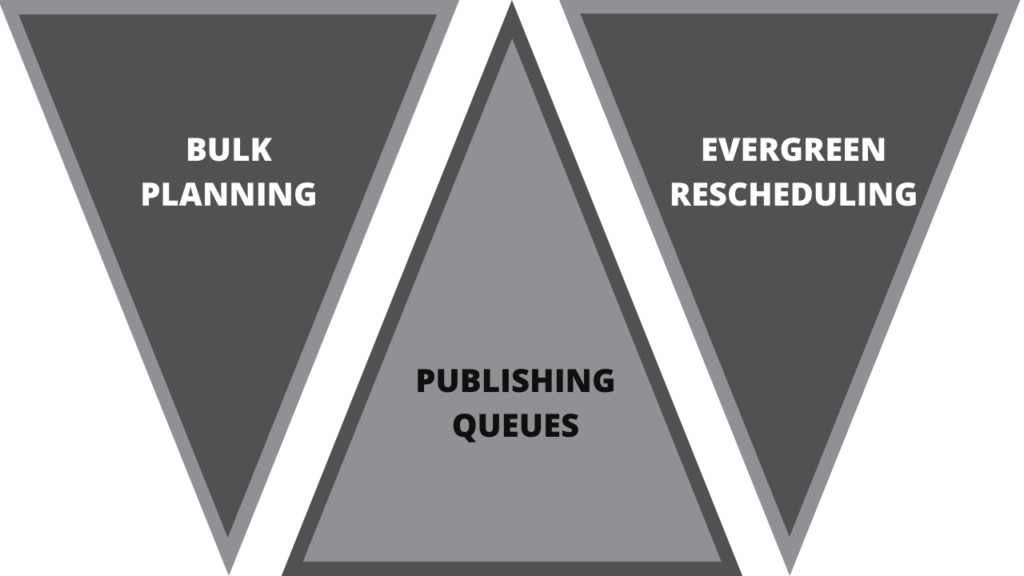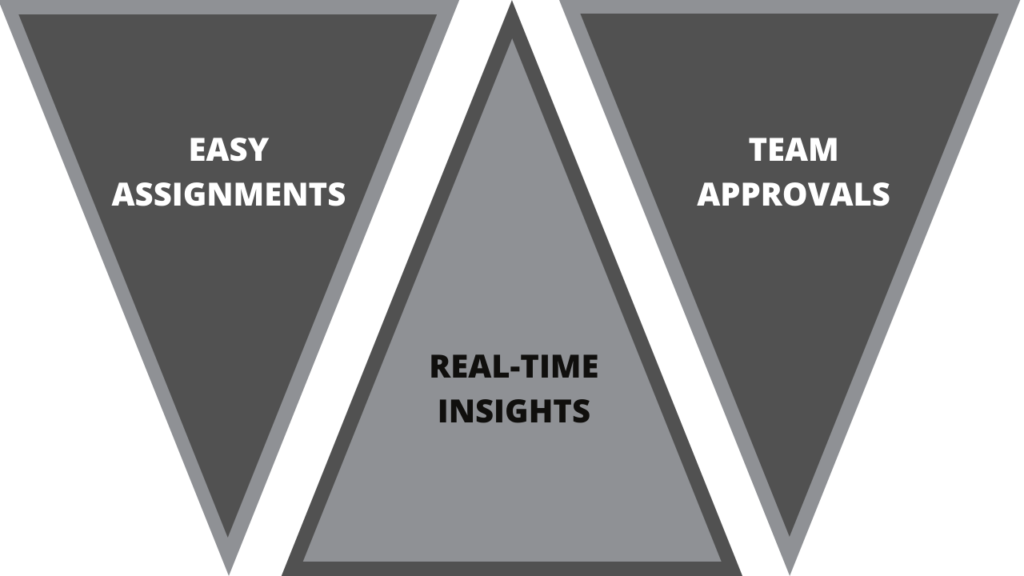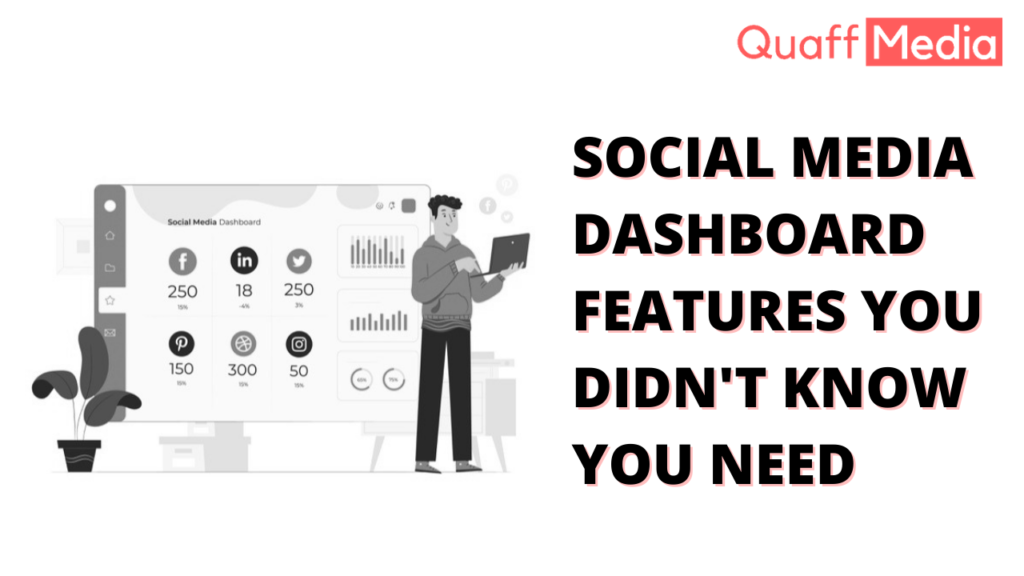Whether you buy an initial social media management tool, you wish that your most popular social media dashboard has these nine essential options.
When you need to supply economical, effective social media management, victimization native tools for Facebook, Twitter is not enough.
Social Media Dashboard Features You Didn’t Know you Need Click To TweetSocial Media Dashboards Basics
A social media management tool could be a digital app that handles all of your social media promoting and social media management wants in one convenient place: the social media dashboard.
Designed to contour your progress and boost your productivity, dashboards will manage tasks like:
· Scheduling: After setting up posts, you can devote additional energy to mapping out high-performing campaigns and methods.
· Engagement: By managing all social media comments and messages in one place, you can save time and improve consistency.
· Monitoring: After following threads concerning trade, you can be a part of the correct conversations in a timely.
· Reporting: If you track necessary metrics, you can share wins with your team and notice ways to enhance performance over time.
To schedule posts, prepare reports, and do everything between social media channels by victimizing one app, you need a dashboard that enables every user to manage multiple brands.
Social media post hardware
To avoid posting instantly, you intend and schedule posts ahead to eliminate constant distractions throughout the workday and save time by batching your work.
Most social media dashboards have integral planning tools. However, your team might have an app that conjointly has advanced functions like:

Bulk planning
After bulk publishing, you can import a CSV with links and captions, transfer loads of photos, or pull from an RSS feed.
Publishing queues
When you need to create your social media content, the calendar is balanced utterly to add content to publication queues with different themes to publish at the correct time every day or week.
Evergreen rescheduling
Sometimes your social posts are too valuable to publish on just one occasion. After scheduling evergreen content, you can set it for publishing many times or repeatedly every few days.
Image-editing choices
It will happen to anyone. You post constant images to multiple social media platforms, and it is quite a disaster. Rather than writing material pictures before planning posts, search for a dashboard that may copulate for you.
Social media inbox
For social media management tools, a social inbox could be a should. Several apps have inboxes that permit you to scan and answer comments and messages.
But several social media managers can even enjoy advanced inbox options just like the following.
Automated moderation
Generating engagement is desirable, but if you receive heaps of spam comments, the real ones will wander away. An inbox assistant will mechanically hide or delete comments supported by your rules.
Saved replies
Many comments and messages might warrant distinctive replies. However, you do not need to own to sort constant replies over and over. With saved replies, you can use and modify responses for common queries.
Ad comments management
With a social inbox, you can manage all engagement in one place—including comments on static ads to handle paid and organic engagement expeditiously.
Social media CRM
Managing engagement with a social media dashboard is for productivity.
You can do even more with a dashboard that includes an integral client relationship management tool.
A social CRM helps you organize and keep track of followers in your dashboard.
With a social CRM, your team can:
· Build relationships. A CRM tracks engagement history for every fan to visit and adds additional context to your replies.
· Find influencers. With a social CRM, you can label fans as ambassadors or micro-influencers as you determine potential partners.
· Take notes. In your social CRM, add personal notes that only your colleagues can see.
Direct interactions with fans are not the sole varieties of engagement that matter.
A dashboard simplifies social listening to listen to all or any of the necessary conversations concerning your whole.
You can conjointly choose hashtags, keywords, and phrases so that you never miss a thread concerning your industry or competitors. Even applying labels mechanically, you can converse for follow-up or analysis.
Team collaboration
When you work on a social media team, you wish for reliable tools for collaboration.
Most dashboard apps support multiple users for your whole team to get on board.
But additional advanced dashboards will take cooperation to new heights with choices like:

Easy assignments
With advanced cooperation tools, you can assign inbox things in precisely one or two clicks. You can conjointly automatize assignments.
Real-time insights
Search for a dashboard that shows time actions, like once a team member reviews or replies to a message.
Team approvals
A dashboard approvingly workflows so your team will produce, schedule, and approve during a single tool.
Shared calendars
In your best interest to adopt a dashboard that helps you to share chosen content with shoppers. With shared calendars, you can offer shoppers quick access to imminent content. From there, they will supply input or approval and you can keep everything on schedule.
Social media analytics
To progress towards goals, decide on social media dashboards that track analytics and prepare reports. Search for a dashboard app with coverage options like:
Get follower numbers, engagement breakdowns, and your whole awareness score for a fast photo of your performance.
Content reports
Review total reach, high content, and therefore the best times and days to publish this, you can notice what is operating and optimize your strategy.
Engagement reports
Track the number of messages you’ve sent and your average reaction time to know if you’re connecting along with your audience.
Team reports
Check performance metrics for every team member to know everyone’s on target.
Conclusion
Choosing the correct tool is vital to up performance, increasing productivity, reaching your social media goals, and overall team success.


Social listening